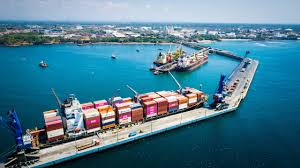El Salvador Digitally Transforms Tax and Customs
By Eproint

El Salvador has implemented a digital transformation of its tax and customs administration, a move that has reportedly boosted tax collection. This initiative was supported by a USD 30 million loan from the Inter-American Development Bank (IDB) in 2018, aimed at modernizing tax and customs procedures. The project's objectives included combating tax evasion, fraud, and smuggling, as well as enhancing the efficiency and effectiveness of tax collection processes.
The program involved the digitization of various tax and customs procedures. This included upgrades to internal tax management systems, such as the digitization of tax documents, and improvements to taxpayer service centers and online platforms. The project also facilitated the adoption of digital technologies to streamline and strengthen customs inspections.
Key aspects of the transformation included the modernization of El Salvador's main customs offices and the updating of the customs code. Notably, the project led to enhancements in the control and inspection of goods at the port of Acajutla, now conducted remotely, and the implementation of a scanner at the San Bartolo customs office to expedite inspections. These advancements were made possible through the IDB-backed program, which financed the acquisition of technology and supported a transactional platform for the customs system.
The digital transformation also focused on improving the traceability of goods. Customs officials can now utilize GPS tracking seals on cargo trucks for enhanced security. The introduction of electronic cargo manifests has also streamlined the inspection process. Furthermore, the acquisition of equipment such as drones, computer systems, radiofrequency identification (RFID) technology, and video surveillance systems contributed to a more controlled flow of commerce and efficient transit at ports of entry.
The project also included the digitization of tax documents, with a specific focus on the value-added tax (VAT). This involved the implementation of electronic invoicing, which aimed to simplify tax declaration and payment for taxpayers and improve compliance verification for the tax authority. According to the Finance Ministry, VAT collection increased from 3.5% of GDP in 2017 to 8.7% in 2023.
According to information provided by IDB specialists Romina Nicaretta and Ana Cristina Calderón Ramírez, this digital transformation has reportedly resulted in a significant increase in tax revenue, reaching over 20% of the country's GDP, and has contributed to a reduction in tax evasion through improved oversight and enforcement. Additionally, the modernization efforts have reportedly shortened taxpayer service times.
